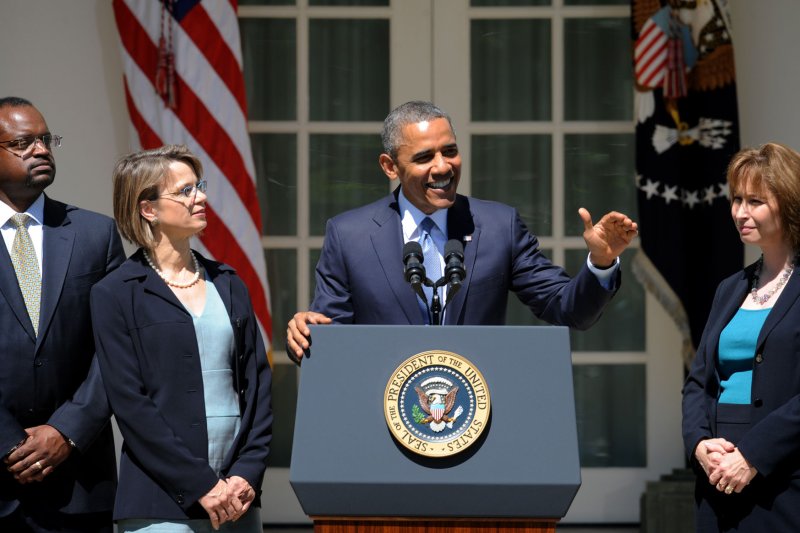1 of 2 | President Barack Obama introduces his three judicial nominees for the U.S. Court of Appeals for the District of Columbia Circuit, in the Rose Garden of the White House in Washington, DC on June 4, 2013. The DC court is considered the nation's second-most powerful court next to the Supreme Court. The nominees are (L-R) Judge Robert Wilkins, Cornelia ÒNinaÓ Pillard, and Patricia Ann Millett. UPI/Pat Benic |
License Photo
WASHINGTON, Oct. 31 (UPI) -- Senate Republicans Thursday killed efforts to end filibusters blocking debate on President Barack Obama's nominees for a cabinet post and a federal judgeship.
Republicans blocked Obama's pick of Rep. Melvin Watt, D-N.C., to head the Federal Housing Finance Agency -- which regulates mortgage-finance giants Fannie Mae and Freddie Mac -- and the nomination of Patricia Ann Millett to one of three empty seats on the District of Columbia District Court of Appeals.
A bid to end the filibuster on Watt failed on a 56-42 cloture vote, four votes short of the 60 votes needed. The vote on Millett was 55-38.
The return to politics as usual came after former Newark Mayor Cory Booker was sworn in as New Jersey's newest senator, reviving talk from Democrats about using the so-called nuclear option -- a change in Senate rules to a simple 51-vote majority to get around the filibusters, Roll Call reported.
"We really hope there's an opportunity for these nominees to move forward," said White House press secretary Jay Carney.
Sen. John McCain, R-Ariz., backed off his earlier declaration that extraordinary circumstances exempted the nominations from a bipartisan 2005 agreement to end such stalemates in the confirmation process.
"If we go to the nuclear option, which I understand some of my colleagues are now frustrated to the point where they'd like to, meaning the 51 votes will now determine either nominees or other rules of the Senate, we will destroy the very fabric of the United States Senate," he said.
Vie President Joe Biden told reporters Thursday the nuclear option is "worth considering."















